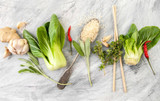Are you trying to remove processed sugars from your diet? Here is your go to guide on different types of sugars and how you can use them!
It is widely understood now that sugar, particularly processed forms i.e. white or brown sugar, contributes to a range of health issues like tooth decay, heart disease and obesity. As awareness for this continues to increase, so too has the media hype and the view that all sugar should be avoided. There are many natural sweeteners that provide great alternatives to processed sugars which can be easily substituted into your baking & cooking.
Here are some alternatives which might help you in your recipes:
DRY SWEETENERS:
COCONUT SUGAR
This is a great sweetener alternative made by 'tapping' the stems of the coconut palm, extracting the sap and dehydrating it at very low temperatures. It is minimally processed ensuring it retains its naturally high mineral and nutrient content. It has a great toffee-like flavour & colour and is considered low GI so provides a slow energy release for your body. It's rich in minerals & amino acids, making it an excellent alternative to cane sugar. It has also been reported as the single most sustainable sweetener in the world by The Food and Agriculture Organization (FAO) of the United Nations. It uses less than 1/5th of the soil nutrients and water than sugar cane for production and produces an average of 50-75% more sugar per acre.
Coconut Sugar can be substituted for other granulated sugars at 1:1 in baking and is the perfect substitute for brown sugar. It can also be used in place of honey or agave in recipes, desserts, coffee and tea.

RAPADURA SUGAR
If you can't live without normal sugar, Rapadura sugar is the best option as it is simply sugar cane juice that has been dehydrated i.e. evaporating the water from the organic sugar cane juice. It has high nutritional value as it retains most of the natural vitamins and minerals, because, unlike other sugar, it is not separated from the nutrient dense molasses part of the sugar cane during the pressing and drying process. It has a unique caramel flavour, fine grain and golden colour.
Rapadura Sugar can be substituted for other granulated sugars at 1:1 in baking and will not alter the texture of baked goods when used instead of processed sugar

STEVIA LEAF POWDER
This a great natural sweetener that doesn't get as much attention as the extract but should. It is simply the leaf of the Stevia Rebaudianna plant ground into a powder. It has no kilojoules, no carbohydrates and has a zero glycaemic index. In fact, research is showing that stevia does not affect blood glucose levels or interfere with insulin.
Stevia is a highly concentrated sweetener - 1 cup of sugar is equal to approximately 1 tsp of Organic Stevia Leaf Powder & 1 tsp of sugar equals only a pinch of stevia powder so be careful when measuring out your quantity!

XYLITOL
Xylitol is a natural sweetener that is produced from hardwood sources, mainly Birch and Beech. It is a lower kilojoule sugar substitute (40% fewer kilojoules than sugar) and also has a low GI (7). It is a good option for those with diabetes, as xylitol is metabolised slowly by the body and doesn't cause the 'sugar spike' that may be experienced with other sugar products, leading to a subsequent drop in blood sugar and a craving for more sweetness.
As a sugar substitute, Xylitol is great when cooking baked treats and can be measured 1:1, as 1/2 cup sugar equals 1/2 cup Xylitol. There are also subtle differences between Xylitol and sugar when cooking or baking, Xylitol absorbs moisture heavily and won’t help you like sugar does when trying to get something to raise using yeast.

DATES
This delicious dried fruit can be ground into a paste and makes a great natural sugar substitute with its caramel flavour. They're great for baking, sweetening smoothies and raw treats. Grind dates in a food processor on their own, or with nuts/seeds, before adding the remaining ingredients. Many raw food enthusiasts also love organic Medjool dates which are even sweeter than normal dates!
Dates can be used in place of sugar in equal amounts, cup for cup, especially brown sugar because of their caramel flavour. Dates work best in baking where the sugar does not need to be fine, as they don't dissolve like sugar does unless you cook them first.

LIQUID SWEETENERS:
AGAVE SYRUP
This delicious syrup is produced from Mexico's Blue Agave cactus plant. It has been extracted by hand from its pineapple shaped core, the flower shoot cut out and the sap collected. Owing to agave syrup's popularity is the fact that it has a low GI (30) and is 1.4 times sweeter than other natural sweeteners. Raw food enthusiasts love it as well because it's not heat treated above 45 degrees during processing!
Although it is a great substitute for sugar, Agave Syrup is sweeter than sugar and doesn't follow the 1:1 ratio so you will need to do a taste test during your cooking (what a shame..!).

BROWN RICE SYRUP
It is produced from 100% organic brown rice and is a very popular & versatile alternative to sugar and other sweeteners. Also known as rice malt syrup, brown rice syrup contains no fructose, which is partly why this sweetener is so popular and is suitable for those sensitive to fructose or following a low FODMAP diet. It is amber in colour, has a long shelf-life and doesn't need to be refrigerated. Make these yummy Boost Balls with our Brown Rice Syrup!
As a sugar substitute, use 1/4 cup of Brown Rice Syrup for one cup of sugar. Use 1/4 cup less of another liquid in the recipe.

COCONUT SYRUP
Extracted from the sap of the coconut blossom, coconut syrup uses the 'tapping' process for the sap. Once collected into clay pots, the sweet sap is then heated and evaporated to form this concentrated coconut nectar syrup. It has a deliciously sweet caramel flavour and delicious with pancakes, toasted cereals, hot beverages, smoothies, and all your favourite dessert recipes!
As a sugar substitute, Coconut Syrup can be almost used 1:1 - it is slightly sweeter than sugar. Again, you may need to remove a little liquid elsewhere.

HONEY
Who doesn't love honey?! Raw honey is the ideal as it is a single extraction, single-sourced honey which hasn't lost its nutrient value from heating. It is carefully extracted from the hive into the first extraction tank before being strained and bottled at temperatures that do not exceed 42 degrees. Honey is known to be anti-bacterial and anti-inflammatory and has a wide array of vitamins and minerals!
Raw Honey is a great substitute in baking, sauces and marinades and like all liquids that are used instead of processed sugars, you may need to remove a little liquid elsewhere to balance the dry to wet ingredient ratio.

MAPLE SYRUP
This classic pancake topping is so versatile! Pure maple syrup is made from the sap of the maple tree, which is boiled to evaporate the water and produce a syrup with the characteristic flavour and colour we all know and love! It contains less fructose than other sweeteners like agave and more iron, calcium, zinc, manganese and potassium than honey. Maple Syrup is a great addition to your baking! Try out our Naturally Sweetened Pecan Pie.
Pure Maple Syrup is endlessly versatile - a great substitute in baking, savoury dishes & sauces but remember you may need to remove a little liquid elsewhere in recipes to ensure the dry to wet ingredient ratio is correct.

MOLASSES
Blackstrap molasses is a thick, dark, strong flavoured syrup made from the extraction process of sugar cane juice. It has a rich, full-bodied robust flavour which gives natural caramel colour and tones when baking. Unlike processed sugar, molasses is extremely rich in the vitamin inositol, B Vitamins, copper, phosphorus, calcium, iron and potassium. The darker the colour the richer the nutrients!
Blackstrap Molasses is popular in baking biscuits, breads, in sauces, marinades or as a flavour enhancer. If you're substituting this for a recipe that calls for sugar, remember you will be adding liquid so you may need to remove a little liquid elsewhere.













![Introducing Broth of Life [Supplier Spotlight] Introducing Broth of Life [Supplier Spotlight]](https://cdn11.bigcommerce.com/s-dis4vxtxtc/images/stencil/160w/uploaded_images/broth-of-life.jpg)


![Introducing Yarra Valley Tea [Supplier Spotlight] Introducing Yarra Valley Tea [Supplier Spotlight]](https://cdn11.bigcommerce.com/s-dis4vxtxtc/images/stencil/160w/uploaded_images/blog-thumbnail-yarra-valley.jpg)
![Introducing Matcha Maiden [Supplier Spotlight] Introducing Matcha Maiden [Supplier Spotlight]](https://cdn11.bigcommerce.com/s-dis4vxtxtc/images/stencil/160w/uploaded_images/blog-thumb-matcha-maiden.jpg)